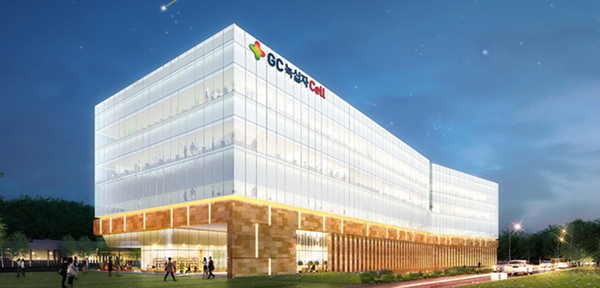GC Cell said that its U.S. affiliate, Artiva Biotherapeutics, has received fast-track designation from the U.S. FDA for their investigational lupus nephritis treatment, AlloNK (development code name: AB-101).

The fast track designation is intended to facilitate the development and expedite the review process for drugs that treat serious conditions and fill an unmet medical need, allowing patients quicker access to new treatments.
Lupus nephritis (LN) is a complication of systemic lupus erythematosus (SLE). There are an estimated five million people with lupus worldwide, of which approximately 40 percent will develop lupus nephritis. Patients with end-stage lupus nephritis in particular require hemodialysis and kidney transplantation.
The company stressed that this designation is a significant milestone as it marks the first approval by the FDA for a clinical trial involving an allogeneic CAR-T or NK (natural killer) cell therapy for an autoimmune disease.
Artiva is conducting a phase 1 trial in the U.S. to evaluate the safety and efficacy of AB-101 in combination with the CD20 antibody Rituximab in patients with Grade III or IV recurrent/refractory lupus nephritis.
AB-101, a cell therapy product derived from cryopreserved umbilical cord blood, is designed to enhance antibody-dependent cellular cytotoxicity (ADCC) against tumor cells.
This approach, which involves the use of antibodies or engagers that adhere well to tumor cells, is expected to enhance the drug's efficacy.
Also, the off-the-shelf nature of AB-101 overcomes the production and cultivation challenges associated with CAR-T therapies, offering the advantage of administration and management outside of a patient-specific framework, thus making it potentially more cost-effective.
“This FDA fast track designation provides us with the opportunity to bring AlloNK (development code name: AB-101) cell therapy to patients with autoimmune diseases sooner rather than later,” Artiva CEO Fred Aslan said. “We have observed that the combination of Mabthera (rituximab) and AlloNK can induce B-cell reduction in patients with late-stage B-cell cancer, and this therapy has a very similar mechanism of action to B-cell-targeted, autologous-derived CAR-T therapies, but with added safety benefits, meaning it will not have the malignant tumor side effects associated with genetically engineered cell therapies.”
Related articles
- [JPM 2024] GC Cell CEO reveals ambitious plans for global expansion and innovation in CGT
- GC Cell completes $29 million Series A funding for BioCentriq
- Korean pharma giants to impress investors at 2024 J.P. Morgan Healthcare Conference
- GC Cell, Lunit partner for CAR-NK cell therapy development with AI
- GC Cell submits 1st IND for CAR-NK cell therapy in Korea
- GC Cell to transfer 'Immunocell-LC Inj' processing tech to US affiliate BioCentriq
- GC Cell recruits NeoImmuneTech’s former global strategy head as CDO
- GC Cell’s US affiliate initiates 1st patient dosing for lupus nephritis study
- Artiva Biotherapeutics appoints new executives to boost strategic growth

